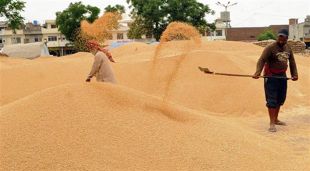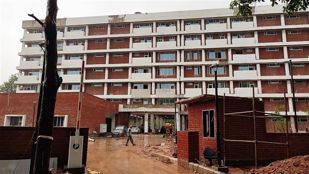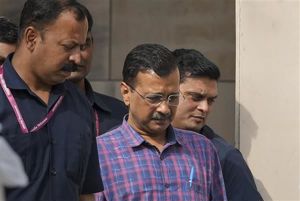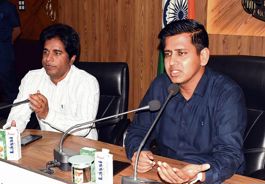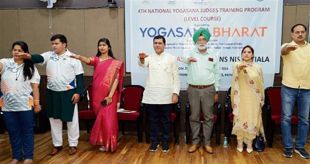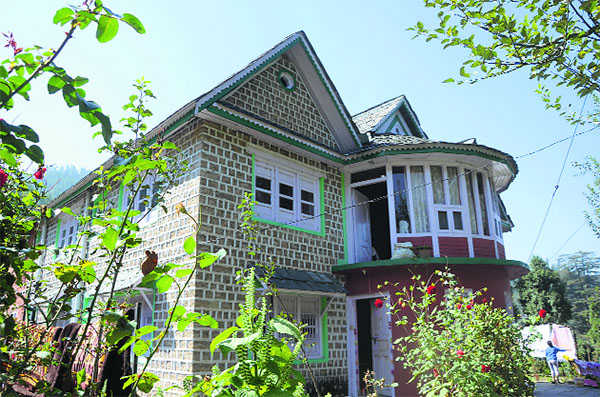
Rajesh Kumar
What beacons nature lovers to the state is its pristine natural charm that lay in its unbounded snow-capped peaks, rich verdure and numerous picturesque valleys.
An aura of religious ambience that envelopes its monasteries – ethereal seats of spiritualism – appeals to those, who seek solace in the divinity of soul-searching. One’s quest for cultural resourcefulness that manifests in ordinary lives of its traditional people culminates with the realisation of a lifetime dream within the four walls of the very homes they live in, for they are real connoisseurs of state’s rich cultural heritage since ages.
Moved by the same perception, Himachal Pradesh Home Stay Scheme, 2008, was launched in the state as a part of government’s eco-tourism promotional initiative with two basic objectives. First, to let foreign tourists have a feel of divine serenity by allowing them to live in traditional houses owned by local inhabitants – away from burgeoning city crowd – in the very lap of nature – at much lesser costs in contrast to luxury hotels. Second, to help rural people in supplementing their meagre incomes by allowing renting out of their houses to foreigners after carrying out mandatory modifications in their existing civil structures in conformity with the guidelines provided therein viz. provision of maximum of one or two additional pucca rooms with attached English style toilets. Home-cooked food at nominal charges as additional services was also provisioned for, if the guests so desired.
Today, there are around 1,220 registered ‘home stays’ in the state, many of which may be conforming to ‘scheme guidelines’ but not necessarily to ‘scheme objectives’ for the two do not seem to be converging to meeting common goal of benefitting rural people – the targeted segment. Located amid somewhat crowded localities and owned mainly by influential locals and not the rightful deserving rural poor, a majority of such units would be found flouting scheme objectives, if surveyed.
The reason is not far to seek. Very tacitly certain lacunae have been left ignored therein that allowed room for the unscrupulous, who stepped in and exploited the scheme to the hilt usurping the rightful due of the rightful claimant in the process – one who is needy, unassertive and voiceless.
Inadequacies that mar the scheme
- Home stays everywhere but in rural areas: The scheme provides for setting up of home stay units in ‘rural areas’, which by definition, are areas outside the urban local body (ULB) limits. This implies village panchayats, which share common boundaries with ULBs are the only eligible entities, where such units may come up. It also signifies that if such units come up on the peripheral border just outside ULB jurisdiction, these would not be held illegal. This lacuna prompted many astute hoteliers to erect ‘two-roomed hotels’ there in the name of ‘home-stay units’ in no time.
-
Deprives targeted rural beneficiaries: Since no specific minimum distance required to be maintained from the peripheral border was prescribed to be mandatorily followed for setting up such units, owners were found technically correct and could not be held culpable nor treated as ‘violators’ by the rule of law. Owing to above shortcoming, the scheme has ended up depriving the targeted rural beneficiaries, who stand robbed of their rightful due at the hands of unscrupulous locals, who are flourishing by running their two-roomed hotels fearlessly in the name of home stay units and enjoying tax exemption on perpetual basis. Is this not moral failure of the scheme?
-
Least congested areas hard to find: A basic qualifying requirement of the scheme was that these should come up in least congested areas only. A home stay unit just on the peripheral border may offer only city dirt and congestion to a dweller, not the calmness and tranquility he otherwise seeks. A criterion of maximum population extent permissible within their radial distance should have been specifically laid out. None seems to be in place.
-
Pseudo-beneficiaries: The scheme should have provided for ascertaining and establishing the economic level of prospective applicants before being considered eligible for it – only rural people from low income group with small landholdings and no other means of sustaining livelihood, but agriculture should have been considered. This would have purged pseudo-beneficiaries from among a whole lot of rightful claimants.
- Flawed policy: The scheme is a victim of flawed policy formulation – an ubiquitous phenomenon dependent solely on the vision of those, who are chronically myopic and can’t see beyond self and pelf. It is time the government revisits the scheme and implements it afresh.





















